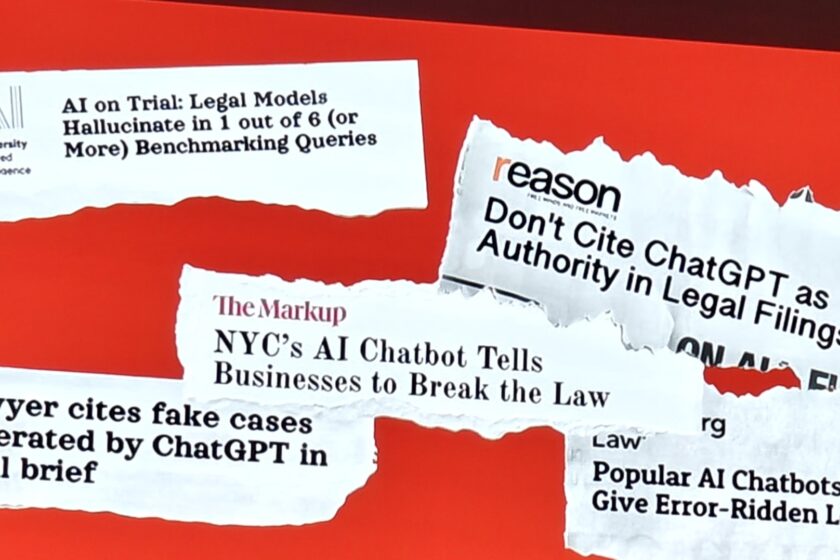The 10th anniversary of Nordic Legal Tech Day in Sweden was a great event, bringing together legal professionals, and tech enthusiasts for a day of discussion, networking, and interesting presentations. AI was naturally on the agenda, but this year, the conversation evolved to focus on how to practically collaborate with these tools and acknowledge their limitations. A standout quote from the event underscored a key point: “a fool with a tool is still a fool.”
The Growing Influence of AI in Law
AI continues to reshape the legal landscape, but the dialogue has shifted from pure fascination with its potential to a more mature understanding of how best to integrate it. As Charlie Moore, Founder and CEO of
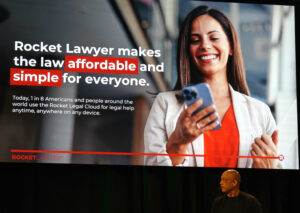
RocketLawyer, illustrated, AI’s role isn’t simply about efficiency—it’s about accessibility. RocketLawyer, now serving one in eight people in the U.S., aims to make legal services more affordable and accessible to individuals who have traditionally lacked access. Moore emphasized that “everything in the legal begins with a conversation,” pointing to AI’s powerful ability to support client conversion and interaction. In his view, the future of law lies in meeting the needs of a wider audience that is beginning to realize they can and should access legal services.
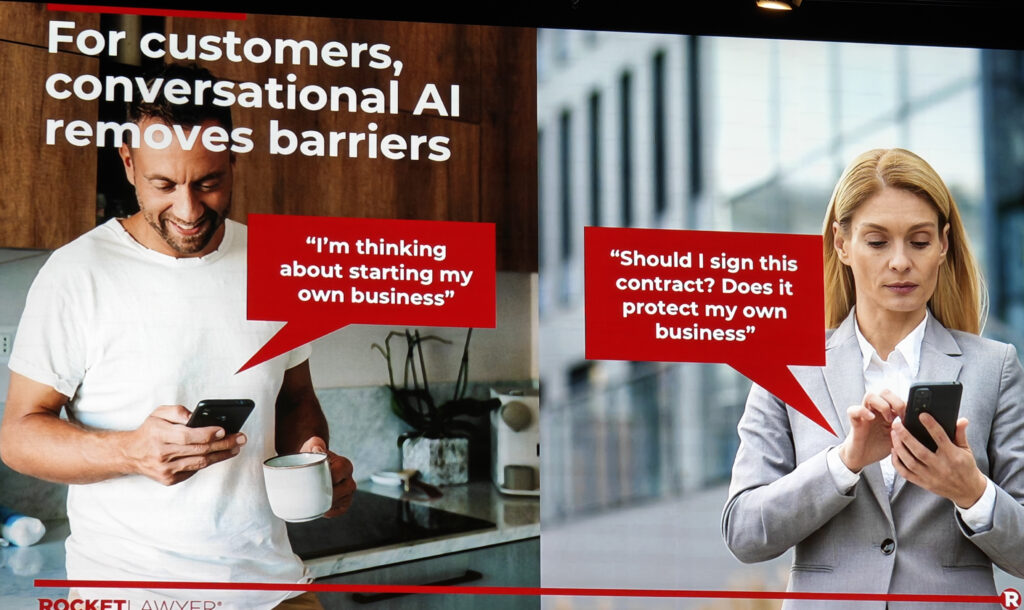
The Lawyer as an Artist
On the topic of the future lawyer, Erik P.M. Vermeulen, a professor at Tilburg University and Senior Legal Counsel at Signify, offered an evocative analogy. He likened the role of the future legal professional to that of an artist, emphasizing human traits that AI cannot (yet) replace—creative thinking, storytelling, and innovation. Vermeulen highlighted that the most successful lawyers are those who continually seek improvement, never fully satisfied with the status quo. Technology, he noted, should be seen as a companion—a tool that augments creativity rather than replacing the human element in legal practice.
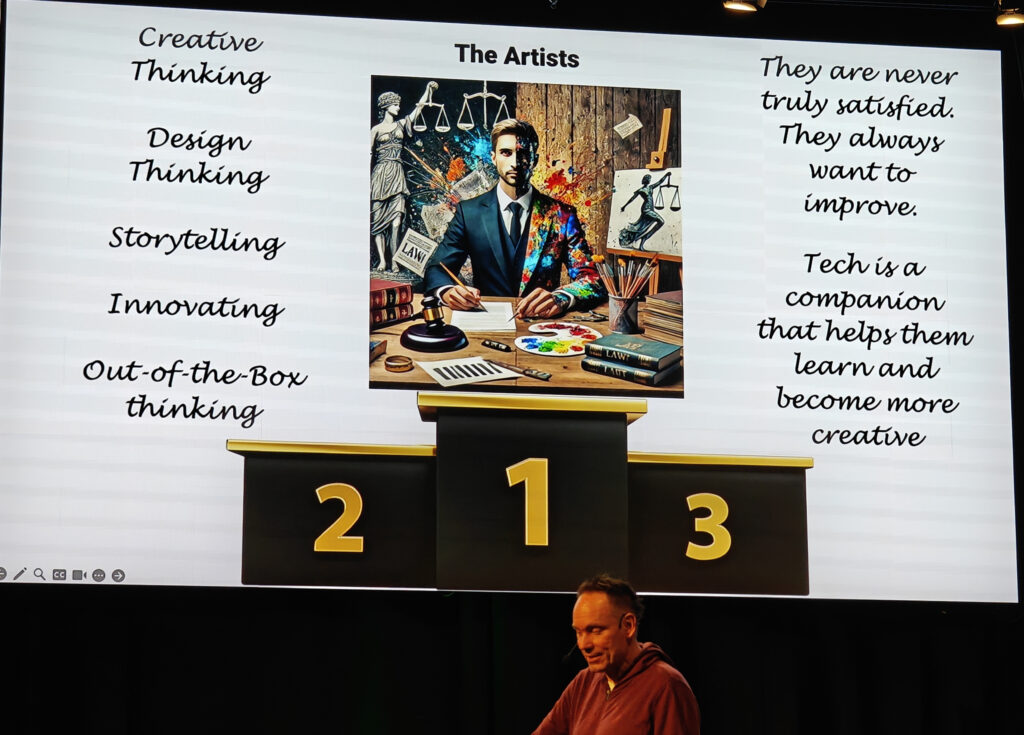
Vermeulen’s vision resonates with the evolving understanding of legal professionals: as tech becomes more sophisticated, the value of uniquely human skills, such as empathy, strategic thinking, and adaptability, becomes even more critical. Lawyers of the future will need to master these competencies, positioning themselves as both technologists and storytellers.
The Leonardo da Vinci of Law
In a similar way, Sara Övreby from Google shared an inspiring perspective on the future lawyer’s role. She described a future where lawyers possess a broader set of competencies—what she called the “Leonardo da Vinci of Law.” This visionary lawyer of the future would blend legal expertise with skills in technology, creativity, and even design thinking. It’s a call for a more omnicompetent legal professional,
Celebrating Legal Innovators
The event also celebrated achievements within the legal tech community, with Elisabet Dahlman Löfgren receiving the prestigious Legal Innovator Prize 2024. I was honored to be part of the jury alongside Ulf Linden, Johan Fagerlund Sjöberg, and Malin Männikö. Dahlman Löfgren was recognized for her leadership at Mannheimer Swartling’s legal tech incubator and her courageous decision to transition into a start-up after 22 years at a prominent law firm. Her contribution to the Swedish legal tech scene has been nothing short of inspirational, exemplifying the boldness and forward-thinking that the legal profession will require in the coming years.
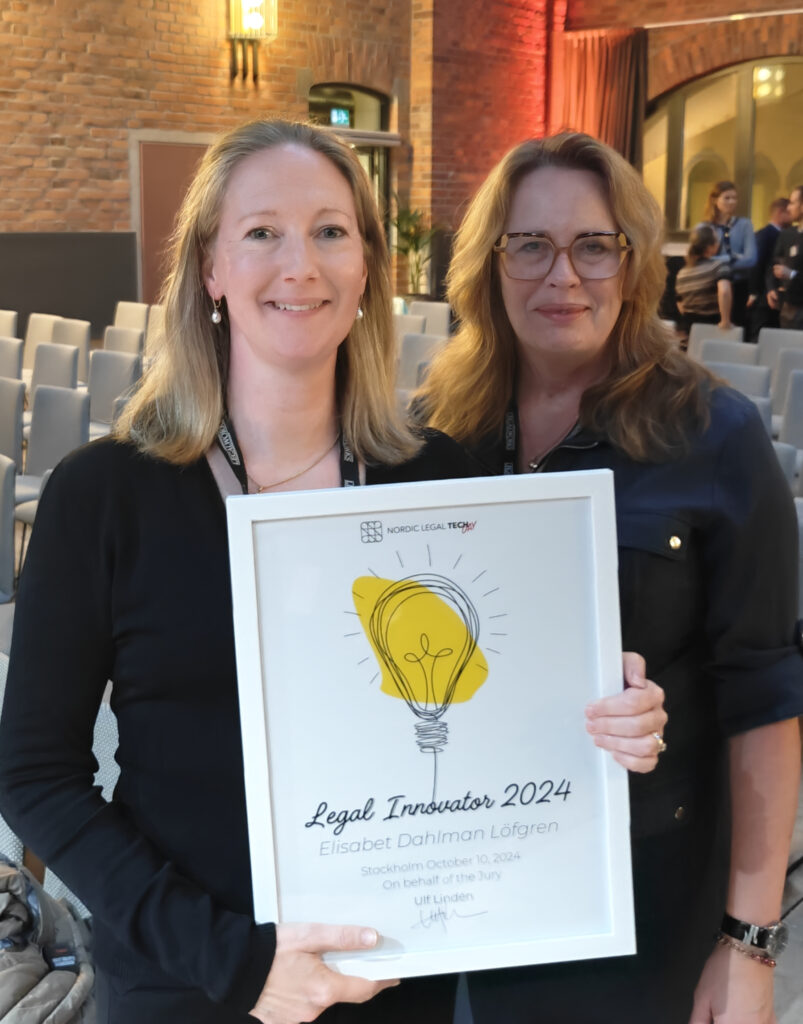
Looking Ahead: Transformation
This 10-year milestone of Nordic Legal Tech Day was a testament to the rapid evolution of the sector, as well as the collaborative spirit driving it forward. Ulf Lindén and Leif Frykman, the event’s founders, were rightfully recognized for their vision in creating this valuable space for networking and sharing ideas.
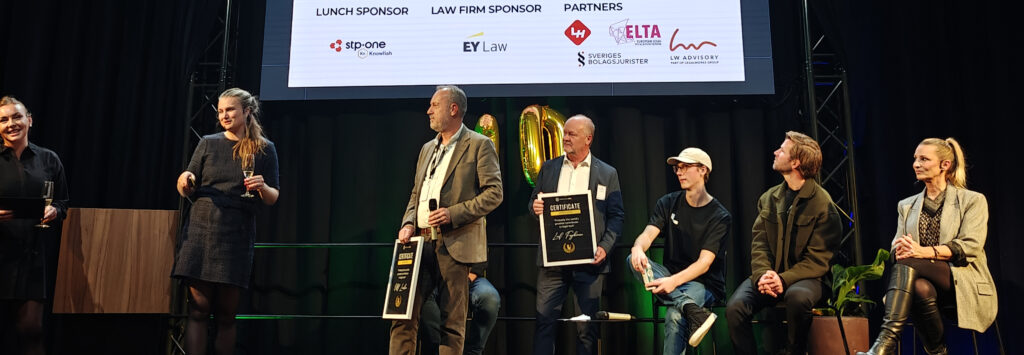
The key takeaway from the event? Legal tech is no longer just about efficiency or automating mundane tasks. It’s about transformation—reshaping legal services to meet the demands of a new generation of clients, empowering lawyers to be more creative, accessible, and impactful than ever before.
As we look ahead to the next decade, the legal profession stands on the brink of a new era—where law and technology walk hand in hand, and the future lawyer is not just a legal expert but a true artist, mastering creative thinking, design thinking, storytelling, and serving as an architect of solutions.
